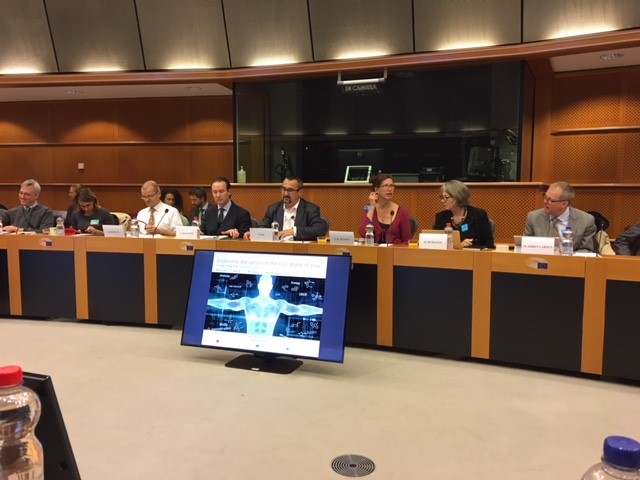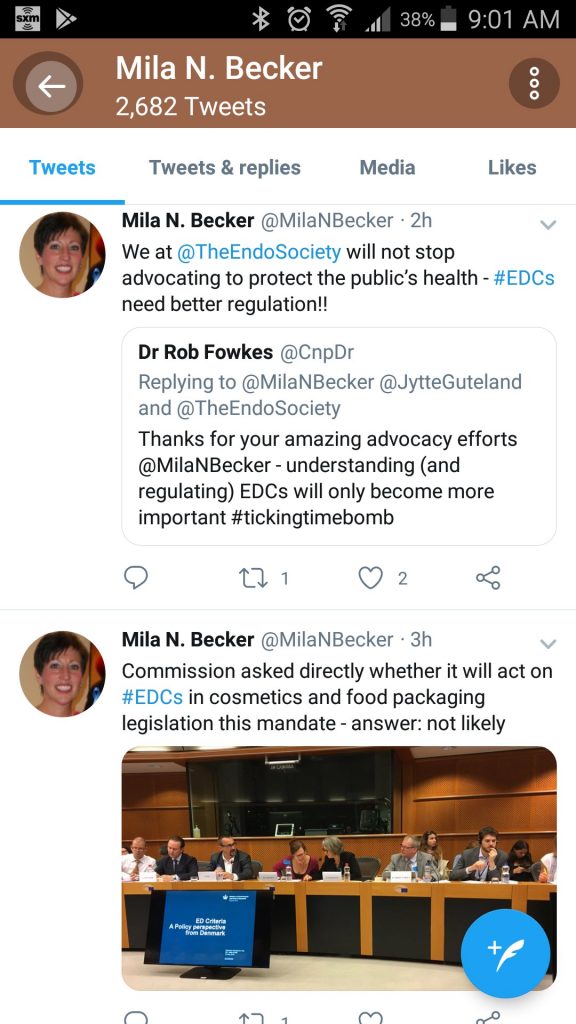Endocrine Society member Barbara Demeneix, BSc, PhD, DSc, explained the importance of protecting the public from endocrine-disrupting chemical (EDC) exposure during a briefing for European Parliament members and staff in Brussels May 24.
Member of the European Parliament Pavel Poc invited our experts to present on the current state of the science and the European Commission’s regulatory criteria.
The Society has expressed continued concern that the Commission’s EDC Criteria and Draft Guidance Document does not go far enough to protect public health from harms due to EDCs. The required level of proof is too high for regulatory agencies to effectively regulate these chemicals, and the scope of the guidance is limited. Gaps and uncertainties remain in the EDC Criteria and Draft Guidance Document that need to be addressed, including:
- the potential for false-negatives is high;
- the need to apply the criteria to other chemicals and other endocrine systems (besides androgen, estrogen, and thyroid);
- certain categories require better test methods; and
- there needs to be a focus on thyroid, neurodevelopment, metabolism, female reproduction, and non-genomic carcinogens.

Demeneix was the only representative of a scientific organization scheduled to present at the event.
The Society is calling for the European Union (EU) Strategy on EDCs to be revised to take into account new scientific information on EDCs and human health hazards. Scientific research has advanced in this area since the original EU strategy was adopted in 1999. The European Commission and agencies also should support further research into this public health issue.
We released an updated position statement on endocrine-disrupting chemicals in the EU this month. The position statement and additional EDC resources are available on our topic page, endocrine.org/edc.
For more information as it happens, follow the Endocrine Society’s chief policy officer Mila Becker on Twitter: @MilaNBecker.


